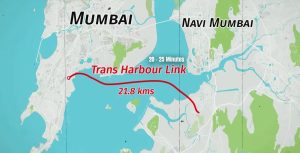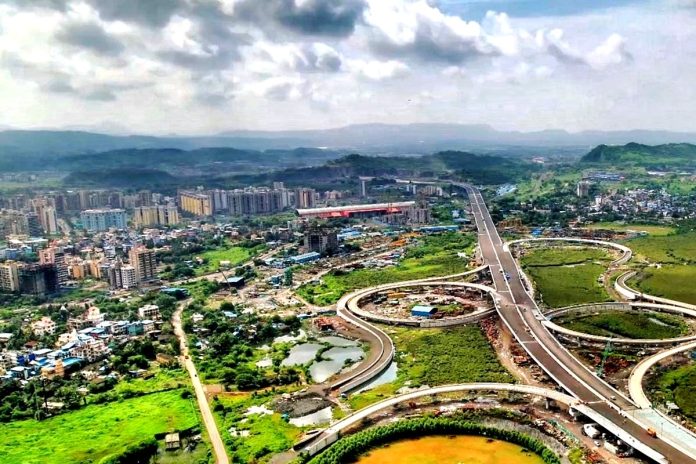In a major step towards opening of the Mumbai Trans Harbour Sealink (MTHL), the Mumbai Metropolitan Region Development Authority (MMRDA) has invited global tenders from experienced firms for operation and maintenance of the mega infra project.
The Contractor shall maintain the project facility for the entire contract period of 24 months (two years). The scope of the contract also includes maintenance of civil structure and operation of Advanced Traffic Management System (ATMS) works.
Named as Atal Bihari Vajpayee Sewri – Nhava Sheva Atal Setu after the former Prime Minister of India Late Atal Bihari Vajpayee, the project connects Sewri on the Mumbai side with Chirle on the Navi Mumbai side in Maharashtra.
The project comprises construction of approximately 21.8 km long and 6-lane wide carriageway viaduct across the Mumbai Bay. It consists about 0.5 km of land viaduct at Sewri, about 16.3km of viaducts over sea/creek and about 4.9 km of viaduct and earth sections on land on Navi Mumbai side.
This Sea link project commences from Messant Road at Sewri where it connects with the
Eastern Freeway and ends at mainland at Shivaji Nagar in Navi Mumbai, providing commuters with a seamless and swift 20-minute journey between these two key locations, free from traffic signals.


Furthermore, the MTHL promises to enhance connectivity to essential transportation arteries like the Mumbai-Goa highway, Mumbai-Pune expressway, Navi Mumbai International Airport, and the JNPT port.
Additionally, the project will promote greater economic integration of Mumbai, Navi Mumbai, and their extended regions such as Pune, Goa, Panvel, and Alibaug.
This fully access-controlled highway will have four interchanges, toll collection facilities and other necessary facilities and building to safely and efficiently operate the project after completion. The project also conforms generally with the relevant expressway standards and has a design speed of 100 km per hour.
Being hailed as the epitome of modern technology, the project has been designed for a lifespan of 100 years and constructed using state-of-the-art Japanese technology.
The game-changer project, once operational, could boost the state’s GDP by five per cent and increase the national GDP by one per cent, according to Dr Sanjay Mukherjee, commissioner, MMRDA.


